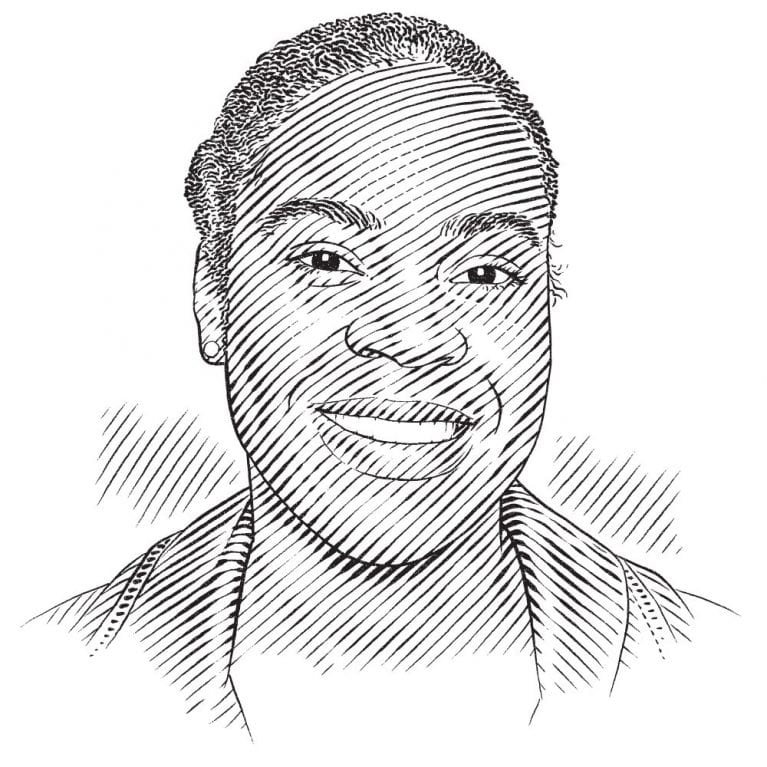Krista Sherman

Who I am
The Bahamas is a subtropical archipelago comprising more than 700 islands and cays separated by stunning seascapes. I grew up on New Providence, one of the country’s smaller islands and the location of its capital, Nassau. I’ve been enjoying the ocean since I was a baby and my fascination with marine life began after I learned to snorkel at about the age of seven. Those early experiences were transformative and ignited a passion and a curiosity that have persisted over time and led me to pursue a BSc in marine science and an MRes in ocean science. For six years I worked on conservation-related research projects in The Bahamas before leaving to begin a PhD in September 2014. Currently I am working towards a PhD in biological sciences from the University of Exeter. My research aims to assess the status, population structure and dynamics of Nassau grouper spawning aggregations in The Bahamas in order to support their conservation. In my spare time I still love snorkelling and free diving – so much so that my friends and colleagues have nicknamed me ‘the mermaid’.
Where I work
As in other island countries, we in The Bahamas rely heavily on the ecosystem services and functions provided by the marine environment to sustain our living. The Nassau grouper is an iconic species and one of the most important marine fish species in our country. However, the abundance of this species has declined drastically not only in The Bahamas, but worldwide, leading to its classification as an Endangered species by the IUCN.
I began studying spawning aggregations of the Nassau grouper in The Bahamas in 2010, along with Dr Craig Dahlgren. For me, one of the most interesting aspects of this endangered species is its spawning behaviour and reproduction; it is a truly awe-inspiring experience to witness a spawning aggregation and be surrounded by hundreds of groupers. Unfortunately, fishing at these aggregation sites has led to the collapse of several that had existed for years. We know very little about the status of the sites that remain.
Recognising the need to address the decline of the Nassau grouper, The Bahamas government prioritised science-based adaptive management in 2013. As a result, I embarked on a multi-year collaborative project with the Shedd Aquarium and Dr Craig Dahlgren the following year to address national research priorities and to help improve conservation management for the species.
Luckily for me, all this field work is conducted in The Bahamas and most of it occurs during the reproductive season for the Nassau grouper, which coincides with winter. The grouper’s reproductive season in The Bahamas extends from November until March, but most of our work is completed within one week around the full moon during the peak spawning months of December and January. From a live-aboard research vessel, R/V Coral Reef II, we collect and process Nassau groupers for fin clip and blood sampling, tagging and morphometric (length and weight) data. Throughout the day and into sunset, we dive among the aggregations to collect data on the abundance, size and spawning behaviour of the species at historic sites around Long Island and Andros. With the support of local fishermen and NGOs, we are also expanding efforts to visit other reported spawning aggregation sites in the country.
What I do
When I am not conducting field work in The Bahamas, I am based in England completing genetic and data analysis at the University of Exeter. Population genetics can be used to answer questions about effective population sizes, diversity and relatedness of fishes. This information is useful not only to advance scientific knowledge, but also to inform fisheries and conservation management decisions. I analyse DNA extracted from fin clip samples and use high-resolution molecular markers to better understand the health and status of Nassau grouper populations in The Bahamas.
One of the key challenges facing the Nassau grouper fishery is that there is limited awareness of fishery regulations and thus no compliance with them. In The Bahamas, although regulations have been implemented to protect the species since the late 1990s, groupers are still being harvested illegally and sold during the closed season. With support from the Department of Marine Resources, the Bahamas National Trust, the Save Our Seas Foundation and local NGOs, I hope to increase public awareness about the status of the fishery and the need for compliance with science-based fishery regulations. This is a daunting task, but it is critical to prevent further collapses of the spawning aggregation sites that replenish the population.